Your search “Keep%20the%20death%20penalty%abolished%20in%20the%20ePhilippfines%20e%20e%20e%20e%20e%20e%20e%20e%20e%20e%20e%20e/page/q26%individuals%20than%20eOhio%intends%20to%20eexecute%20death%20esuffer%20efrom%20esome%20ecombination%20of%20esevere%20emental%20eillness,%intellectual%20edisability,%20eserious%20echildhood%20etrauma%20efrom%20ephysical%20and%20esexual%20abuse,%20for%20ewere%20eyoung%20eadults%20ewith%20eimpaired%20ejudgment%20ewhen%20the%20ecommitted%their%20ecrimes. ”

Article(s)
Singapore: Authorities must end executions and stop targeting anti-death penalty activists to curb criticism
By World Coalition Against the Death Penalty, on 28 August 2024
We, the undersigned seven organizations, are gravely concerned by developments in Singapore since the beginning of August 2024, which has seen the authorities carry out two executions in violation of international safeguards on the death penalty, as well as limiting the right to freedom of expression of the Transformative Justice Collective, a non-governmental organization who […]
2024
Singapore
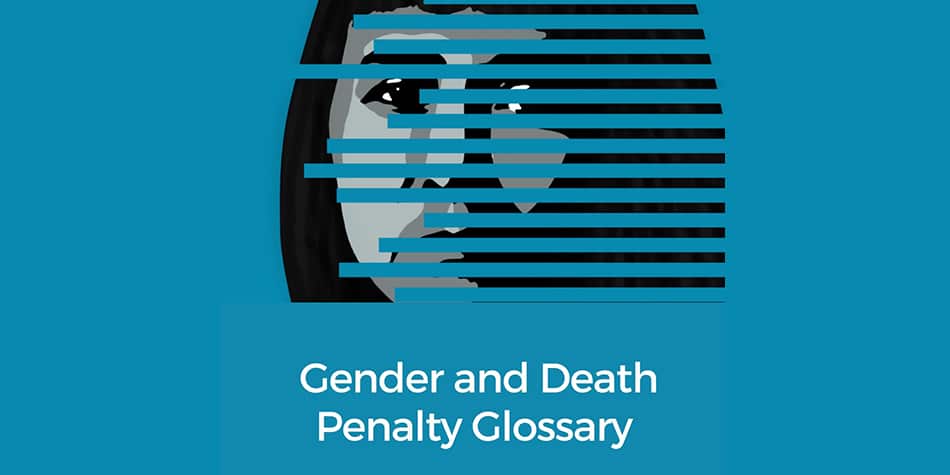
Article(s)
World Coalition launches glossary on gender and the death penalty
By World coalition against the deaht penalty, on 15 August 2023
As part of its efforts to mainstream a gender lens in the abolitionist movement, the World Coalition Against the Death Penalty just released a glossary on gender and the death penalty. The first of its kind, this publication presents and defines terms relevant to gender-sensitive abolitionist work that recognize the various forms of gender-based discrimination […]
2023
Gender
Article(s)
Taiwan activists battle in death penalty-triggered political crisis
on 19 March 2010
After Taiwan’s justice minister was forced to step down for not signing execution warrants, local and international abolitionists rushed in to restore a balanced debate and protect the country’s 44 death row inmates.
2010
Moratorium
Public Opinion
Taiwan
Taiwan
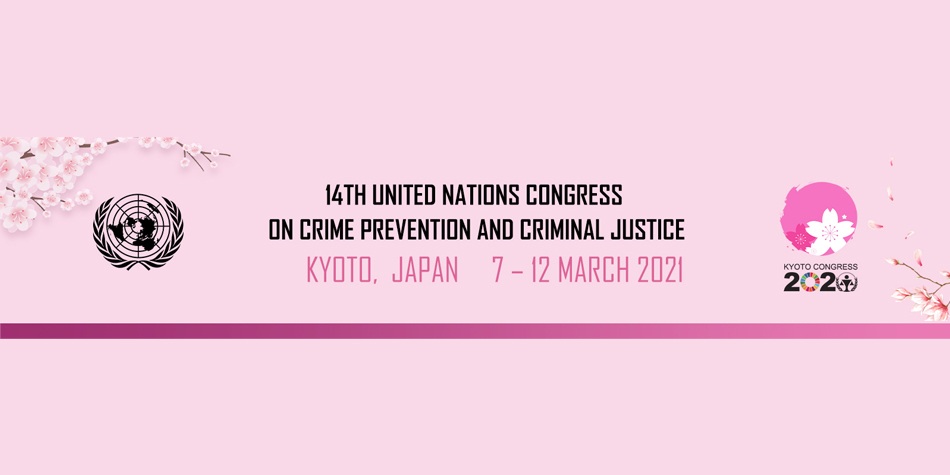
Article(s)
Recapping the UN Crime Congress in Kyoto
By Teppei Ono, CPR, on 15 March 2021
The United Nations Congress on Crime Prevention and Criminal Justice was held in Kyoto, Japan from 7 to 12 March 2021.
2021
Public Opinion
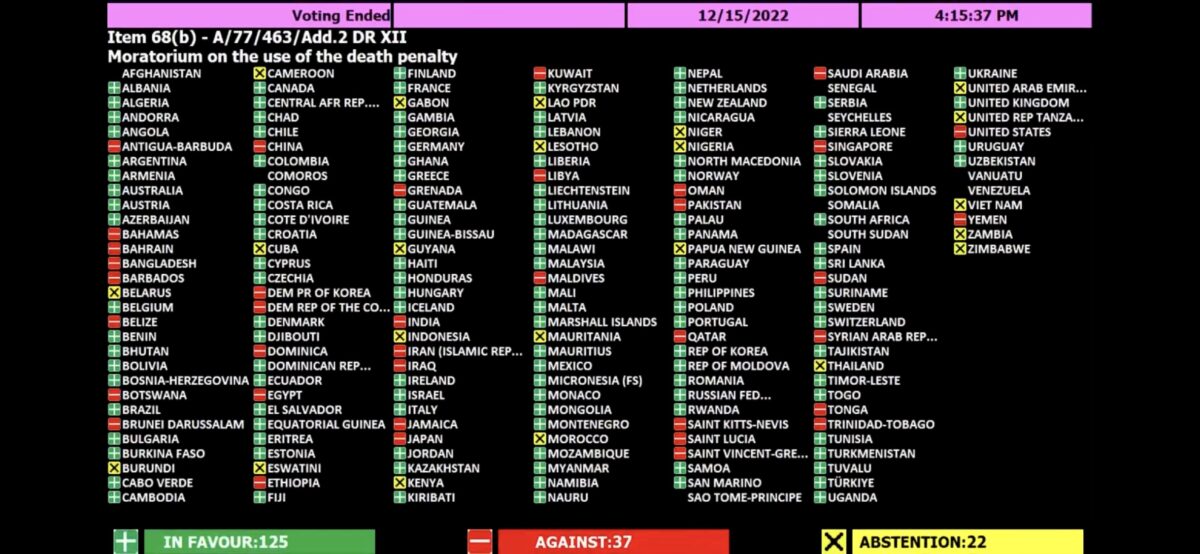
Article(s)
9th Resolution for a moratorium on the death penalty: the trend is growing
By World Coalition Against the Death Penalty, on 20 December 2022
On 15 December 2022, the United Nations General Assembly adopted the 9th resolution for a moratorium on the use of the death penalty with 125 votes in favor (2 more than in 2020), 37 votes against, 22 abstentions and 9 absent.
2022
Moratorium
Trend Towards Abolition

Article(s)
Papua New Guinea: one step away from full abolition of the death penalty
By Aurélie Plaçais, World Coalition Against the Death Penalty, on 21 January 2022
Papua New Guinea’s National Parliament voted to repeal the death penalty on 20 January2022. The bill has now to be signed into law and to be published in the official gazette.
2022
Moratorium
Papua New Guinea
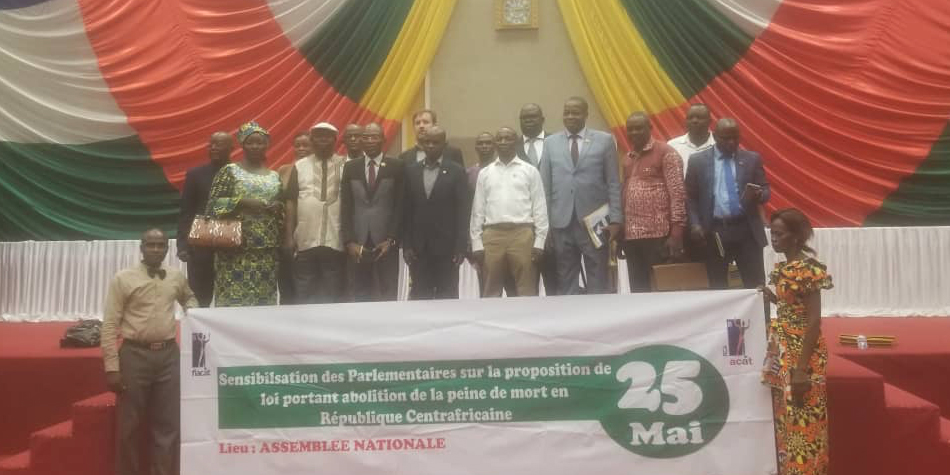
Article(s)
Central African Republic Becomes 24th African State to Abolish the Death Penalty
By ACAT-RCA, ECPM, FIACAT, on 26 June 2022
The President of the Central African Republic promulgated the law abolishing the death penalty on June 27 2022, one month after the National Assembly passed the law. CAR is now the 24th abolitionist state in Africa and the 111th in the world.
2022
Central African Republic
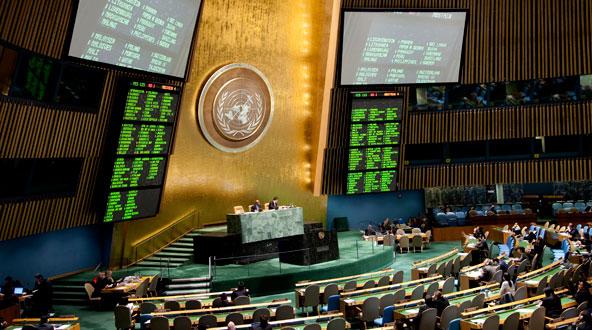
Article(s)
117 countries vote for a global moratorium on executions
By Maria Donatelli, on 19 December 2014
The latest vote at the UN General Assembly shows wider support than ever for a resolution on a moratorium on the use of the death penalty.
2014
Moratorium

Article(s)
New Hampshire: 21st State to Abolish the Death Penalty in the USA
By Aurelie Placais, on 12 June 2019
On 30 May 2019, the NH state Senate voted to override the governor’s veto. The death penalty repeal took effect immediately.
2019
United States
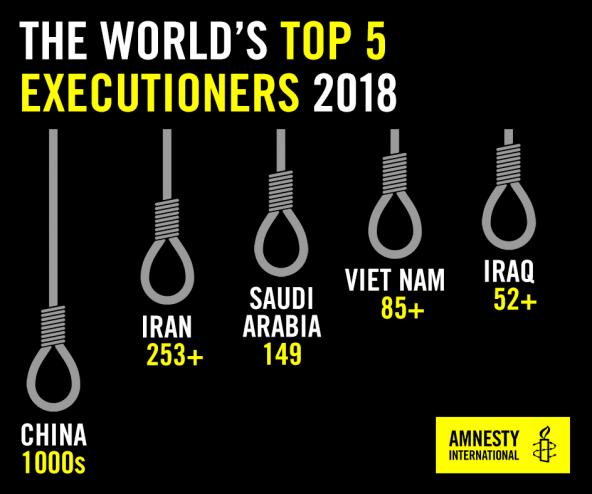
Article(s)
Death penalty 2018: Dramatic fall in global executions
By Amnesty International, on 10 April 2019
Despite a rise in executions in some countries, global executions fell by 31% in 2018. The universal fight for the abolition of the death penalty seems to be on the right way.
2019

Article(s)
Suriname and Haiti to lead abolitionist way in the Caribbean
By Thomas Hubert (in San Juan, Puerto Rico), on 27 June 2014
The World Coalition held its 2014 AGM in abolitionist Puerto Rico and highlighted key regional developments in the fight against the death penalty, which remains on the books of many countries in the Greater Caribbean.
2014
Barbados
Haiti
Jamaica
Puerto Rico
Suriname
Suriname
Trinidad and Tobago
Document(s)
Educational guide 2009
By World Coalition against the death penalty , on 10 October 2009
2009
Campaigning
Trend Towards Abolition
esfrruzh-hantMore details Download [ pdf - 536 Ko ]
With this Educational Guide, the World Coalition
Against the Death Penalty is launching a collaborative
initiative which aims to improve the contributions of all.
This guide will be regularly supplemented by new infor-
mation and themes. It will also be frequently updated
on the Coalition’s website (www.worldcoalition.org).
On behalf of the members of the World Coalition in
more than thirty countries across the world, we thank
you for your support.
- Document type Campaigning
- Themes list Trend Towards Abolition
- Available languages Guía pedagógica Jornada mundial 2009Guide pédagogique 2009Руководство по обучению организации мероприятий по случаю Всемирного дня борьбы против смертной казни2009 年世界反死刑日
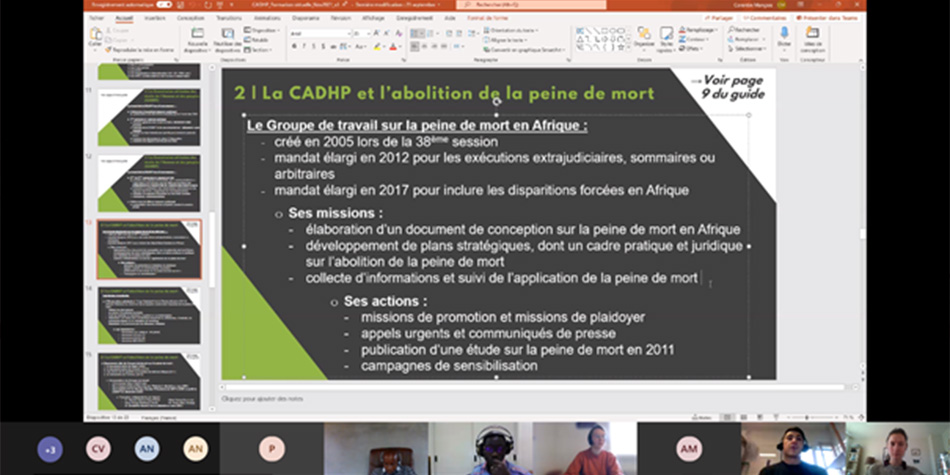
Article(s)
NGO Forum and 69th Ordinary Session of the African Commission of Human and Peoples’ Rights
By Bronwyn Dudley and Corentin Mançois, on 17 December 2021
The ACHPR (the African Commission on Human and Peoples’ Rights) met again virtually for its 69th Ordinary Session from 15 November – 5 December 2021.
2021
Terrorism
Women
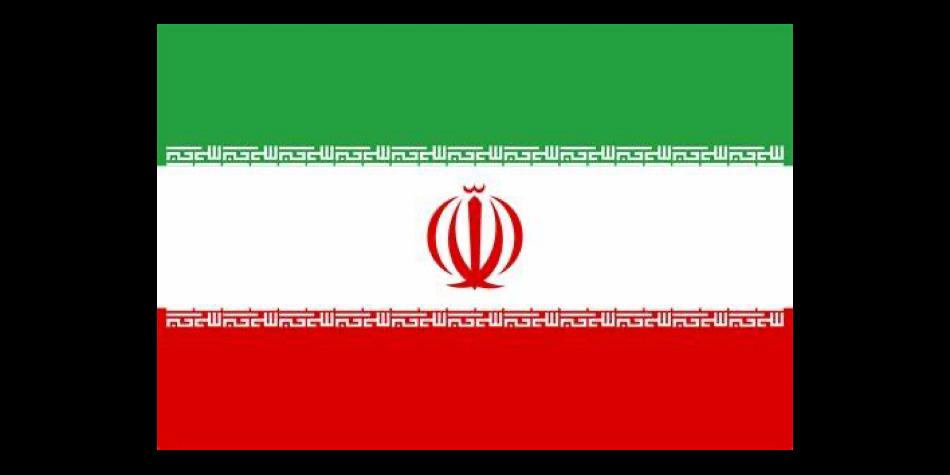
Article(s)
Joint Statement to condemn the public executions and the surge of executions in 2022 in Iran
By World Coalition Against the Death Penalty, on 11 August 2022
The World Coalition Against the Death Penalty strongly condemn the resumption of public executions in Iran and the surge in the executions in 2022, which goes against the international trends towards abolition of the death penalty.
2022
Iran (Islamic Republic of)
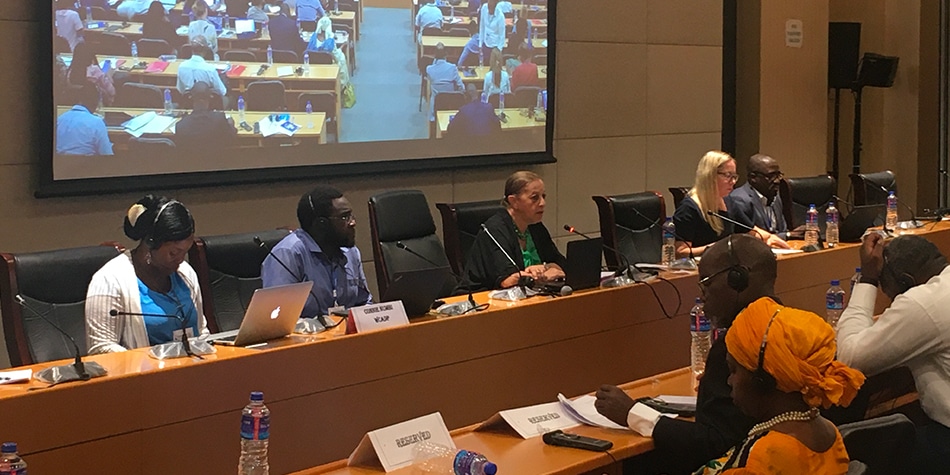
Article(s)
73rd Ordinary Session of the African Commission of Human and Peoples’ Rights: In- Person, Advocating Against the Death Penalty
By Bronwyn Dudley & Connie Numbi, on 16 December 2022
After nearly 3 years, the ACHPR (African Commission on Human and Peoples’ Rights) met in-person in Banjul, The Gambia to hold their 73rd Ordinary Session from 21st October – 10th November 2022.
2022
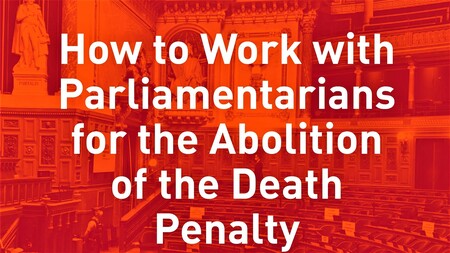
Article(s)
Publication of a New Guide on Working with Parliamentarians to Abolish the Death Penalty
By World Coalition Against the Death Penalty, on 10 October 2021
The World Coalition Against the Death Penalty, in partnership with Parliamentarians for Global Action (PGA), has published a new how-to guide for civil society organizations (CSOs) on how to collaborate with parliamentarians to abolish the death penalty.
2021
Women

Article(s)
Abolition of the death penalty at the United Nations Human Rights Council 51st session
By World coalition against the death penalty, on 24 October 2022
The United Nations Human Rights Council met for its 51st regular session from September 12 to October 7, 2022. If you missed it, here is what happened regarding the abolition of the death penalty!
2022
Trend Towards Abolition
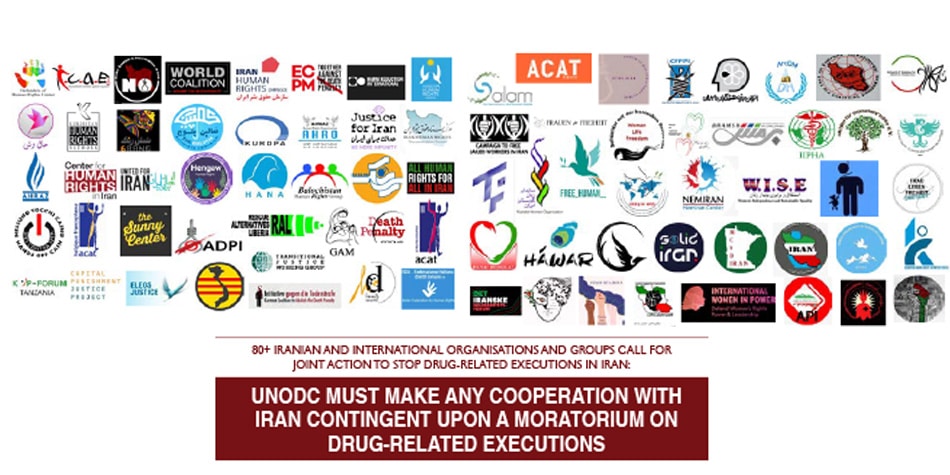
Article(s)
Call for joint action to stop drug-related executions in Iran
on 3 May 2024
April 10, 2024 Iran Human Rights (IHRNGO) and 83 Iranian and international organisations and groups have called for joint action to stop drug-related executions, urging UNODC to make “any cooperation with the Islamic Republic contingent on a complete halt on drug-related executions”. They have announced the start of a mass international campaign in this regard.
2024
Drug Offenses
Iran (Islamic Republic of)

Article(s)
Statement of international solidarity with the families of people sentenced to death in Iran
By The World Coalition Against the Death Penalty, on 15 September 2022
The World Coalition Against the Death Penalty express its solidarity with the families and relatives of people who are sentenced to death in Iran and with the civil society organizations supporting them.
2022
Iran (Islamic Republic of)
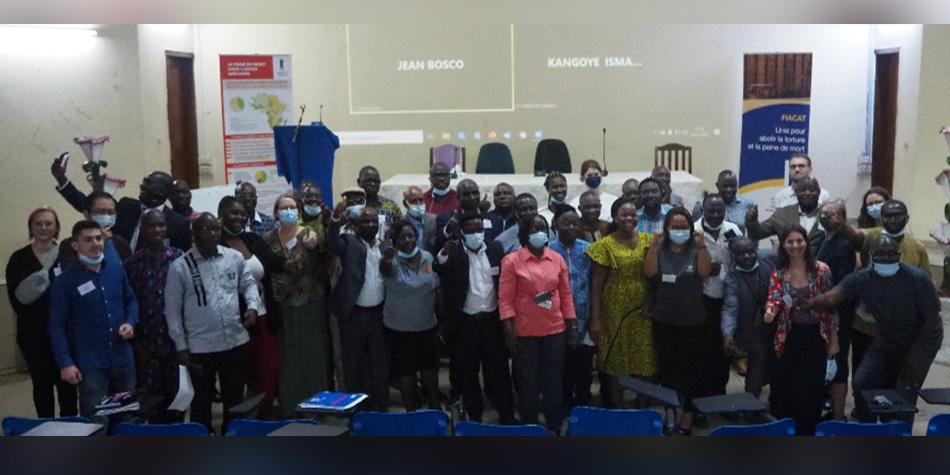
Article(s)
Capitalization workshop of the project for the abolition of the death penalty in sub-Saharan Africa
By Elise Garel, on 4 January 2022
Member organizations of the World Coalition Against the Death Penalty and African ACATs (Action des Chrétiens pour l’Abolition de la Torture) met in Abidjan (Côte d’Ivoire) for the capitalization workshop of Phase 2 of the project for the abolition of the death penalty in sub-Saharan Africa, organized on 29 and 30 November by the World […]
2022
Côte d'Ivoire
Moratorium
Public Opinion

Article(s)
In support and solidarity with “No Death Penalty Tuesdays” abolitionist movement in Iran
By World Coalition Against the Death Penalty, on 28 August 2024
Every six hours, one person was executed in Iranian prisons in the first 20 days of August. Execution numbers have been rising every year since 2021, with at least 834 people executed in 2023, and 395 executions recorded by Iran Human Rights as of 26th August 2024.
2024
Iran (Islamic Republic of)
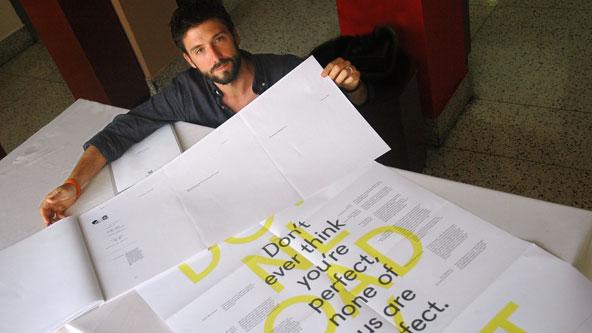
Article(s)
Publishing the final words of the executed to restore their humanity
By Thomas Hubert, on 16 October 2014
Publisher Joshua Herman and photographer Marc Asnin want to issue thousands of American schools with a book presenting the final statements of executed prisoners in an attempt to remind supporters and opponents of the death penalty alike that it targets human beings.
2014
Public Opinion
United States
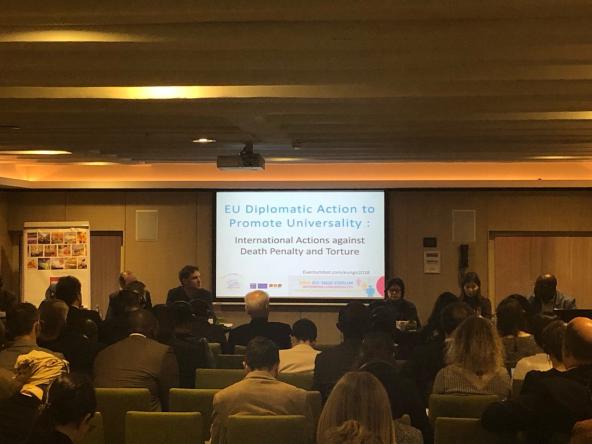
Article(s)
Death penalty is torture, says expert
By Nicolas Chua & FIACAT, on 29 November 2018
In celebration of the Universal Declaration of Human Rights’ 70th anniversary, the 20th EU-NGO Forum was held in Brussels on 21-22 November 2018, during which a session on “International Actions against Death Penalty and Torture” took place. World Coalition Director Aurélie Plaçais was invited to participate in the panel discussion, alongside representatives from Coalition member organizations ECPM and FIACAT.
2018
Death Row Conditions

Article(s)
Divided opinions on death penalty in Belarus
on 8 October 2013
On the occasion of the World Day Against the Death Penalty, World Coalition member organizations Penal Reform International and Belarus Helsinki Committee are releasing a rare opinion poll on what people know and think about capital punishment in the last European country with the death penalty.
2013
Belarus
Belarus
Public Opinion

Article(s)
‘Sakineh’ campaign to culminate in worldwide protests
on 25 August 2010
What started as an effort to save an Iranian woman sentenced to death by stoning is turning into a global movement for human rights and against capital punishment.
2010
Cruel, Inhuman and Degrading Treatment and Punishment
Iran (Islamic Republic of)
Public Opinion
Article(s)
Activists from Burundi, Rwanda and DR Congo join forces
on 3 December 2008
The Great Lakes Regional Coalition Against the Death Penalty held its first meeting on November 17 in Kinshasa. Its lobbying efforts have accelerated Burundi’s legislative process.
2008
Burundi
Democratic Republic of the Congo
Moratorium
Rwanda
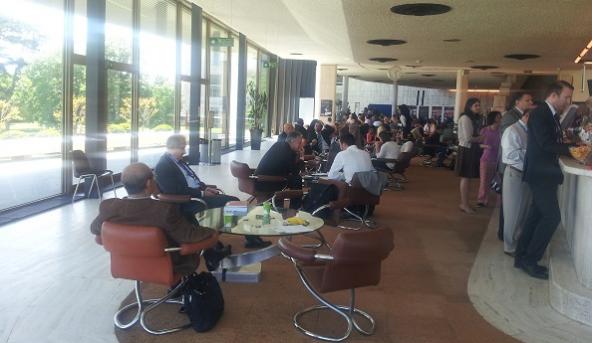
Article(s)
Abolitionist NGOs lobby to educate UN member states in Geneva
By Aurélie Plaçais, on 22 April 2015
Several World Coalition members carried out intense advocacy activities during and after the March session of the Human Rights Council to prepare for the coming UPR session, during which Liberia, Malawi and the USA will be examined.
2015
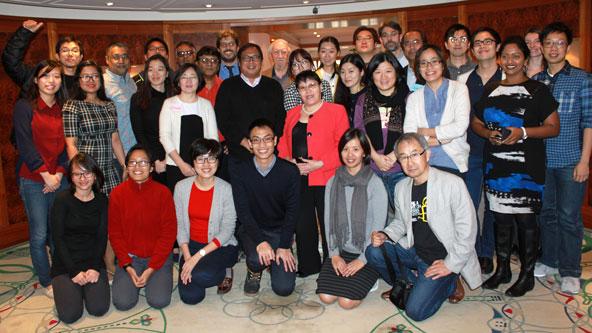
Article(s)
ADPAN network strengthens abolitionists across Asia
By Aurélie Plaçais (in Taipei, Taiwan), on 9 December 2014
The Anti-Death Penalty Asia Network, a coalition hosted by Amnesty International in London since 2006, has become an independent organisation registered in Malaysia and held its first AGM in Taipei, Taiwan on 4-5 December.
2014
China
Japan
Malaysia
Mongolia
Public Opinion
Republic of Korea
Taiwan
Taiwan
Document(s)
The Mercy Workers, Death Penalty Mitigation Specialists
By Maurice Chammah, The Marshall Project, on 2 March 2023
2023
Article
Legal Representation
United States
More details See the document
For three decades, a little-known group of “mitigation specialists” has helped save death-penalty defendants in the USA by documenting their childhood traumas. A rare look inside one case.
- Document type Article
- Countries list United States
- Themes list Legal Representation
Article(s)
Activists and diplomats slam political executions in Iran
on 1 February 2010
The Islamic Republic finds itself more isolated than ever after it hanged to dissidents and threatened many more with execution.
2010
Cruel, Inhuman and Degrading Treatment and Punishment
Fair Trial
Iran (Islamic Republic of)
Document(s)
The Illusion of Heightened Standards in Capital Cases
By Anna VanCleave, University of Connecticut - School of Law, on 25 January 2024
2024
Article
Fair Trial
United States
More details See the document
Published on April 3, 2023.
The death penalty has gained its legitimacy from the belief that capital prosecutions are more procedurally rigorous than noncapi-tal prosecutions. This Article reveals how a project of heightened capital standards, set in motion when the Supreme Court ended and then revived the death penalty, was set up to fail.
In establishing what a constitutional death penalty would look like, the Court in 1976 called for heightened standards of reliability in capital cases. In the late 1970s and early 80s, the Supreme Court laid out specific constitutional procedures that must be applied in capital cases, and left the door open for the Eighth Amendment to do even more. In the decades that followed, state and federal courts have fueled a perception of heightened procedural rigor in capital cases by referring repeatedly to the heightened standards applica-ble in capital cases.
- Document type Article
- Countries list United States
- Themes list Fair Trial
Document(s)
2021 OHCHR Report on Deterrence: High-level panel discussion on the question of the death penalty
By Office of the High Commissioner for Human Rights (OHCHR), on 14 January 2022
2022
United Nations report
Public Opinion
aresfrruzh-hantMore details See the document
The present report is submitted pursuant to Human Rights Council resolutions 26/2 and 42/24. It provides a summary of the high-level panel discussion on the question of the death penalty held on 23 February 2021 at the forty-sixth session of the Council. The panel discussion addressed the human rights violations related to the use of the death penalty, in particular with respect to whether the use of the death penalty has a deterrent effect on crime rates.
- Document type United Nations report
- Themes list Public Opinion
- Available languages حلقة نقاش رف عة المستوى بشأن مسألة عقوبة الإعدامInforme de la OACDH 2021 sobre el efecto disuasorio : Mesa redonda de alto nivel sobre la cuestión de la pena de muerteRapport HCDH 2021 sur l'effet dissuasif : Réunion-débat de haut niveau sur la question de la peine de mortОбсуждение в рамках дискуссионной группы высокого уровня вопроса о смертной казни,способствует ли ее применение сдерживанию преступности2021年联合国威慑效应报告 - 关于死刑问题的高级别专题小组讨论会
Document(s)
Getting to Death: Race and the Paths of Capital Cases after Furman
By Fagan, Jeffrey and Davies, Garth and Paternoster, Raymond, Columbia Public Law Research Paper, Forthcoming, Cornell Law Review, Vol. 107, No. 1565, 2022, on 13 January 2023
2023
Academic report
Fair Trial
United States
More details See the document
Decades of research on the administration of the death penalty have recognized the persistent arbitrariness in its implementation and the racial inequality in the selection of defendants and cases for capital punishment. This Article provides new insights into the combined effects of these two constitutional challenges. We show how these features of post-Furman capital punishment operate at each stage of adjudication, from charging death-eligible cases to plea negotiations to the selection of eligible cases for execution and ultimately to the execution itself, and how their effects combine to sustain the constitutional violations first identified 50 years ago in Furman. Analyzing a dataset of 2,328 first- degree murder convictions in Georgia from 1995–2004 that produced 1,317 death eligible cases, we show that two features of these cases combine to produce a small group of persons facing execution: victim race and gender, and a set of case-specific features that are often correlated with race. We also show that these features explain which cases progress from the initial stages of charging to a death sentence, and which are removed from death eligibility at each stage through plea negotiations. Consistent with decades of death penalty research, we also show the special focus of prosecution on cases where Black defendants murder white victims. The evidence in the Georgia records suggests a regime marred less by overbreadth in its statute than capriciousness and randomness in the decision to seek death and to seek it in a racially disparate manner. These two dimensions of capital case adjudication combine to sustain the twin failures that produce the fatal lottery that is the death penalty.
- Document type Academic report
- Countries list United States
- Themes list Fair Trial
Document(s)
Lethal injection in the modern era: cruel, unusual and racist
By Reprieve , on 24 April 2024
2024
NGO report
Cruel, Inhuman and Degrading Treatment and Punishment
United States
More details See the document
Published on April 2024.
Researchers at Reprieve conducted an in-depth comparative study of botched lethal injection executions in the modern era of the U.S. death penalty, cross-referenced against the 1,407 lethal injection executions carried out or attempted during that period.
This report examines the phenomenon of botched executions by lethal injection, exploring the trends and contributing factors leading to botched executions through an analysis of 73 botched executions in the 1,407 lethal injection executions since 1977 (known as the modern era of the death penalty in the U.S.). This analysis used a process called multi-variable logistic regression, a type of analysis that assesses the odds of something happening considering multiple variables, to assess how identifiable characteristics (gender, age, and race) were associated with botched executions.
- Document type NGO report
- Countries list United States
- Themes list Cruel, Inhuman and Degrading Treatment and Punishment
Document(s)
A/HRC/48/L.17/Rev.1 Resolution adopted by the Human Rights Council
on 2 June 2021
2021
International law - United Nations
aresfrruzh-hantMore details See the document
- Document type International law - United Nations
- Available languages A/HRC/48/L.17/Rev.1 قرار اعتمده جملس حقوق اإلنسايفA/HRC/48/L.17/Rev.1 Resolución aprobada por el Consejo de DerechosA/HRC/48/L.17/Rev.1 Résolution adoptée par le Conseil des droits de l’hommeA/HRC/48/L.17/Rev.1 Резолюция, принятая Советом по правам человекаA/HRC/48/L.17/Rev.1 人权理事会 月 日通过的决议
Document(s)
Carrying out executions took a secret toll on workers — then changed their politics
By Chiara Eisner, on 16 November 2022
2022
Article
United States
More details See the document
Most of the workers NPR interviewed reported suffering serious mental and physical repercussions. But only one person said they received any psychological support from the government to help them cope. The experience was enough to shift many of their perspectives on capital punishment. No one who NPR spoke with whose work required them to witness executions in Virginia, Nevada, Florida, California, Ohio, South Carolina, Arizona, Nebraska, Texas, Alabama, Oregon, South Dakota or Indiana expressed support for the death penalty afterward, NPR found.
- Document type Article
- Countries list United States
Document(s)
Detailed Factsheet – World Day 2022
By the World Coalition Against the Death Penalty, on 4 July 2022
2022
World Coalition
frMore details Download [ pdf - 893 Ko ]
Detailed factsheet on torture and the death penalty, for the 20th World Day Against the Death Penalty (2022).
- Document type World Coalition
- Available languages Fiche détaillée - Journée mondiale 2022
Document(s)
Efforts towards abolition of the death penalty: Challenges and prospects
By Death Penalty Research Unit (DPRU), University of Oxford, on 5 February 2024
2024
Academic Article
Trend Towards Abolition
More details See the document
Published in December 2023.
This paper reflects on the role of international human rights treaties in promoting universal abolition and progressive restriction of the death penalty. It suggests that over the past quarter of a century a ‘new human rights dynamic’ has aimed to generate universal acceptance that however it is administered, the death penalty violates the human rights of all citizens exposed to it. Nevertheless, defences of capital punishment based on principles of national sovereignty are engrained in some parts of the world, particularly in Asia and the Middle East. The human rights project struggles to make inroads into such jurisdictions where political will is opposed to abolition, and trenchant protection of sovereignty threatens the very universality of these rights.
- Document type Academic Article
- Themes list Trend Towards Abolition
Document(s)
Children who are Impacted by a Family Member’s Death Sentence or Execution: Information for Mental Health Professionals
By National Child Traumatic Stress Network (NCTSN), Texas after violence project, Clinical and Support Options, on 11 December 2021
2021
Working with...
Juveniles
More details See the document
This tip sheet provides some guidelines for mental health professionals who may encounter or work with children and families related to individuals who have been sentenced to death or executed.
- Document type Working with...
- Themes list Juveniles
Document(s)
Initiatives World Day 2006
By World Coalition against the death penalty , on 10 October 2006
2006
Campaigning
Trend Towards Abolition
frMore details See the document
Initiatives World Day 2006
- Document type Campaigning
- Themes list Trend Towards Abolition
- Available languages Initiatives journée mondiale 2006

22nd World Day Against the Death Penalty – The death penalty protects no one.
on 12 June 2024
Observed every 10 October, the World Day Against the Death Penalty unifies the global abolitionist movement and mobilizes civil society, political leaders, lawyers, public opinion and more to support the call for the universal abolition of capital punishment.
2024
Public Opinion
Trend Towards Abolition
Article(s)
Europe launches diplomatic offensive against the death penalty
on 10 October 2008
Since 2007, October 10 is also the European Day Against the Death Penalty. Numerous European politicians have chosen this day to state their opposition to capital punishment.
2008
Lebanon
Uganda
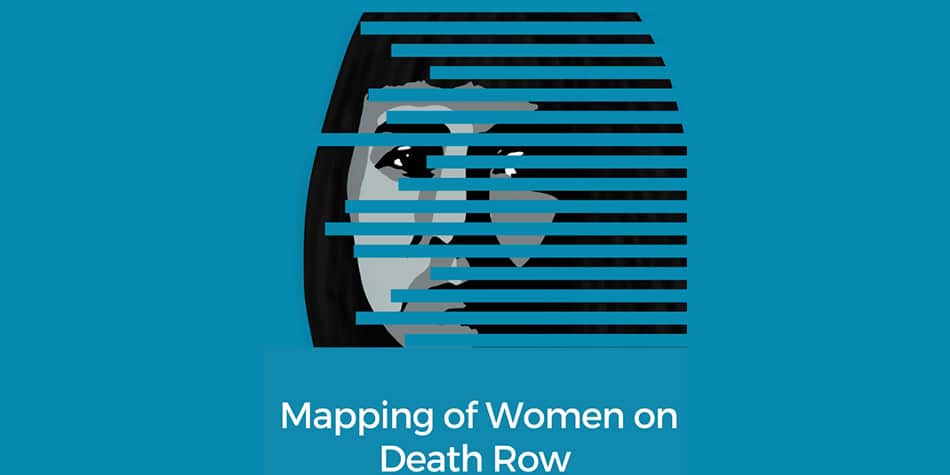
Article(s)
World Coalition Publishes Country Mapping Report on Women on Death Row
By World coalition against the death penalty, on 8 September 2023
To obtain a global view of existing data on women sentenced to death, the World Coalition carried out a systematization exercise of new data, compiled in a report published in August 2023.
2023
Women
Document(s)
World Coalition Activity Report 2022
By World Coalition Against the Death Penalty, on 22 August 2023
2023
World Coalition
Trend Towards Abolition
frMore details Download [ pdf - 323 Ko ]
- Document type World Coalition
- Themes list Trend Towards Abolition
- Available languages Rapport d'Activité de la Coalition Mondiale 2022
Document(s)
Investigating Attitudes to the Death Penalty in Indonesia Part One – Opinion Formers: An Appetite for Change
By Carolyn Hoyle - The Death Penalty Project, in partnership with LBH Masyarakat and the University of Indonesia, on 28 June 2021
2021
NGO report
Drug Offenses
Indonesia
Public Opinion
More details See the document
In 2019-20, The Death Penalty Project, in partnership with LBH Masyarakat and the University of Indonesia, commissioned Professor Carolyn Hoyle, of The Death Penalty Research Unit at the University of Oxford to conduct research investigating attitudes towards the death penalty in Indonesia.
The findings have been presented in a two-part report; the first details the findings of a nuanced public survey and the second details the findings of interviews conducted with opinion formers.
- Document type NGO report
- Countries list Indonesia
- Themes list Drug Offenses / Public Opinion
Article(s)
Global mobilisation against Iraq’s high-profile death sentences
on 4 December 2010
Several former associates of Saddam Hussein have been sentenced to death. The Iraqi President, NGOs and international diplomats are now fighting to save their lives.
2010
Clemency
Iraq
Iraq
Document(s)
A/HRC/RES/54/35 Resolution adopted by the Human Rights Council
on 7 February 2024
2024
International law - United Nations
aresfrruzh-hantMore details See the document
- Document type International law - United Nations
- Available languages A/HRC/RES/54/35قرار اعتمده مجلس حقوق اإلنسانA/HRC/RES/54/35 Resolución aprobada por el Consejo de Derechos HumanosA/HRC/RES/54/35 Résolution adoptée par le Conseil des droits de l’hommeA/HRC/RES/54/35 Резолюция, принятая Советом по правам человекаA/HRC/RES/54/35 人权理事会 通过的决议
Document(s)
The Use of the Death Penalty as a Bargaining Chip in Innocence Cases
By Claudia I. Salinas, California Western International Law Journal, on 1 February 2024
2024
Academic Article
United States
More details See the document
Published in 2023.
While 70% of the world’s countries have abolished the death penalty, also known as capital punishment, much of the United States continues to use it in its criminal legal proceedings.According to the Death Penalty Information Center, at least 190 people were exonerated prior to their fated execution date after being wrongly convicted and sentenced to death in the United States. There is no way to tell how many of the 1,562 people, who have been executed in the United States, were actually innocent. As there are wrongful convictions still happening today, it is no surprise that most countries consider the death penalty a human rights issue.
- Document type Academic Article
- Countries list United States
Article(s)
Final Declaration 4th World Congress Against the Death Penalty
on 26 February 2010
The participants to the World Congress Against the Death Penalty have handed over their final declaration to the UN’s High Commissioner for Human Rights, Navanethem Pillay.
2010
Moratorium
Document(s)
The Physician in the Execution Chamber: No Such Thing as the Normal Pain of Dying
By Joel Zivot, California Western International Law Journal , on 1 February 2024
2024
Academic Article
United States
More details See the document
Published in October 2023.
For capital punishment to be lawful in the United States of America, it must occur without cruelty, a requirement of the traditional reading of the Eighth Amendment. There has never been a consensus on what form of execution is cruel, although some historic practices are shockingly barbaric to modern sensibilities— I think of the “draw and quarter” technique. The family of the murdered victim may fairly argue that the murderous behavior should be the minimum degree of cruelty meted out. But western countries eschew that standard and seek moderate forms, partly to deter by punishment and partly as a forfeit of the murderer’s life for the victim’s life when execution is allowed in that state. Certainly, there is substantial support for continuation of execution in states that allow it. The judges must be respectful of that, but still, they must respect the 8th amendment. At present, the prevalent method of execution in the United States is “lethal injection” using injectable medicines in very high doses that are repurposed to kill the prisoner. Because it is impossible to ask an executed individual about the cruelty experienced during their own death, the state instead relies on the empathy of witnesses to gauge the cruelty of a prisoner’s execution. Lethal injection was expected to be a bloodless execution and aimed to eliminate the visible appearance of cruelty, sometimes through the use of a paralytic.
- Document type Academic Article
- Countries list United States
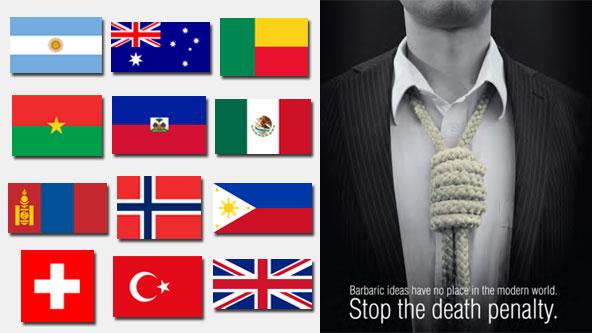
Article(s)
Dialogue should make death penalty “a sentence of the past” – foreign ministers
By World Coalition Against the Death Penalty, on 9 October 2014
Twelve governments from countries with and without capital punishment release a joint declaration calling for a world that “respects human dignity” on World Day Against the Death Penalty.
2014
Argentina
Australia
Benin
Burkina Faso
Haiti
Intellectual Disability
Mental Illness
Mexico
Mongolia
Norway
Philippines
Switzerland
Turkey
United Kingdom
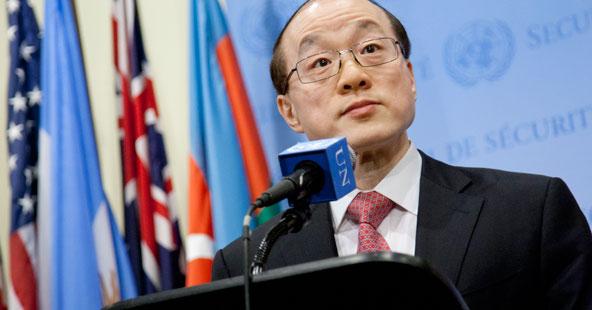
Article(s)
How far is China ready to reduce its use of the death penalty?
By Aurélie Plaçais, on 25 November 2013
The number one executioner in the world recently made national and international commitments to continuing to reform its death penalty, but how far is China really ready to go?
2013
China
Clemency
Drug Offenses
Terrorism
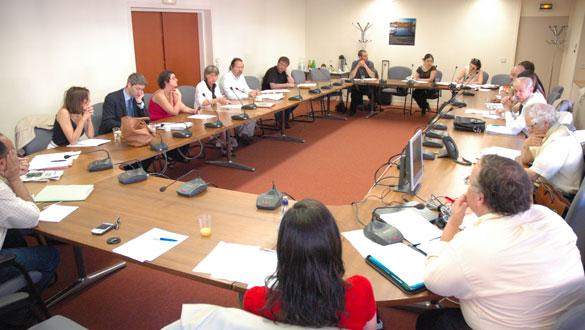
Article(s)
Statutes of the World Coalition Against the Death Penalty
on 26 June 2011
Amended by the General Assembly on June 26, 2011
2011
Document(s)
Singapore’s death penalty for drug trafficking: What the research says and doesn’t
By Academia SG - Promoting Scorlorahsip Of/For/By Singapore, on 24 January 2024
2024
Academic report
Drug Offenses
Singapore
More details See the document
Published on October 7, 2023.
Of all retentionist countries, Singapore seems to be the most vocal about the need to execute individuals as a form of criminal punishment. MAI SATO (Monash University) reviews studies conducted or commissioned by Singapore’s Ministry of Home Affairs that claim public backing for and the effectiveness of the death penalty in managing drug trafficking. Sato finds that these studies provide far weaker evidence for using the death penalty for drug trafficking than their authors and officials citing them claim.
- Document type Academic report
- Countries list Singapore
- Themes list Drug Offenses
Document(s)
Blaming it on the past: Usages of the Middle Ages in contemporary discourses of the death penalty in England
By Death Penalty Research Unit (DPRU), University of Oxford, on 5 February 2024
2024
Academic Article
United Kingdom
More details See the document
Published in December 2023.
In popular, intellectual and political culture, the Middle Ages are intrinsically tied to violent images of public executions. To historians of the medieval period, this temporal attachment of the death penalty to a remote period is puzzling, especially since it is still widely enforced in the world today and was only relatively recently abolished in Europe. Capital punishment is not only a part of history, but a modern-day reality. Why, therefore, do we pin this punishment to the Middle Ages? This paper aims to analyse the discourses surrounding the usage of the Middle Ages in modern discussions on the death penalty, and to clarify medieval practices of capital punishment, showing how remote they are from our contemporary understanding
- Document type Academic Article
- Countries list United Kingdom
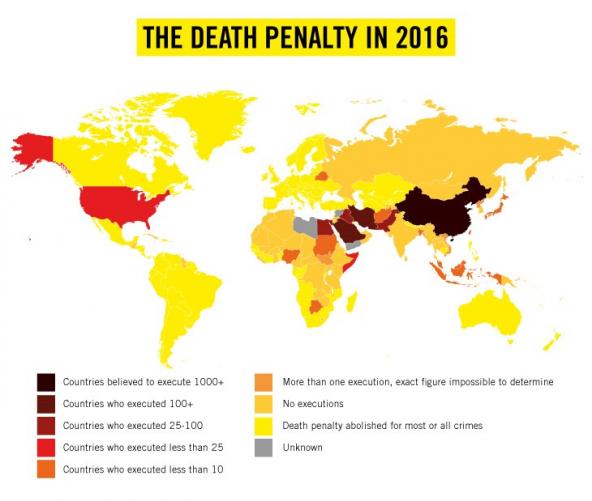
Article(s)
Death Sentences and Executions in 2016
By Amnesty International, on 11 April 2017
Amnesty International published its 2016 global review of the death penalty on Tuesday, April 11th 2017.Excluding China, states around the world executed 1,032 people in 2016. China executed more than all other countries in the world put together, while the USA reached a historic low in its use of the death penalty in 2016.
2017

Article(s)
Middle East and North Africa: Abolitionist civil societies in full swing despite a difficult context
By Aurelie Placais, World Coalition Against the Death Penalty, on 15 February 2022
On the occasion of the publication of the Human Rights Watch World Report 2022, the World Coalition looks back at recent developments and civil society mobilization against the death penalty in the Arab world.
2022
Bahrain
Egypt
Fair Trial
Iraq
Moratorium
Morocco
Saudi Arabia
State of Palestine
Terrorism
Tunisia
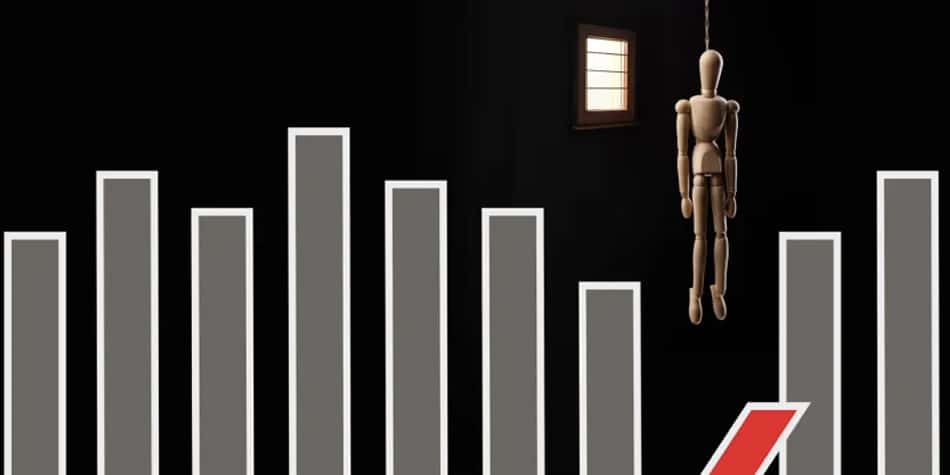
Article(s)
Unveiling Singapore’s Death Penalty Discourse: A Critical Analysis of Public Opinion and Deterrent Claims
By World coalition against the death penalty, on 27 March 2024
While Singapore’s Ministry of Home Affairs (MHA) maintains a firm stance on the effectiveness of the death penalty in managing drug trafficking in Singapore, the article presents evidence suggesting that the methodologies and interpretations of these studies might not be as substantial as portrayed.
2024
Singapore

Article(s)
Despite recent setbacks, the trend towards the universal abolition towards the death penalty remains
By Elise Guillot, on 8 February 2017
The UK-All Party Parliamentary Group on the Abolition of the Death Penalty organised a meeting in London, on 25 January 2017. Gathering parliamentarians, representatives of the British institutions as well as members of the civil society, the meeting aimed at presenting the worldwide death penalty situation and at focusing on the countries at risk of reintroducing the death penalty.
2017

Article(s)
Notes on the Supreme Court Trial in the Chen Fu-hsiang Case: Life or Death Debates in the Style of ChatGPT
By Lin Tzu-Wei (Legal Director of the Taiwan Alliance to End the Death Penalty), on 14 July 2023
Article first published in april on TAEDP’s website Return of life or death debates Following the previous oral arguments on death penalty cases at the Supreme Court in 2021, another life or death debate took place in April this year. This time, I had the opportunity to attend the oral arguments of the “Chen Fu-hsiang […]
2023
Taiwan

Article(s)
What China’s report to the United Nations tells us about transparency and the death penalty
By World Coalition Against the Death Penalty, on 28 June 2024
In January 2024, China underwent its fourth Universal Periodic Review (UPR) by the UN Human Rights Council. While in all previous reviews, the death penalty was mentioned in the Chinese state report, nothing was reported this year.
2024
China
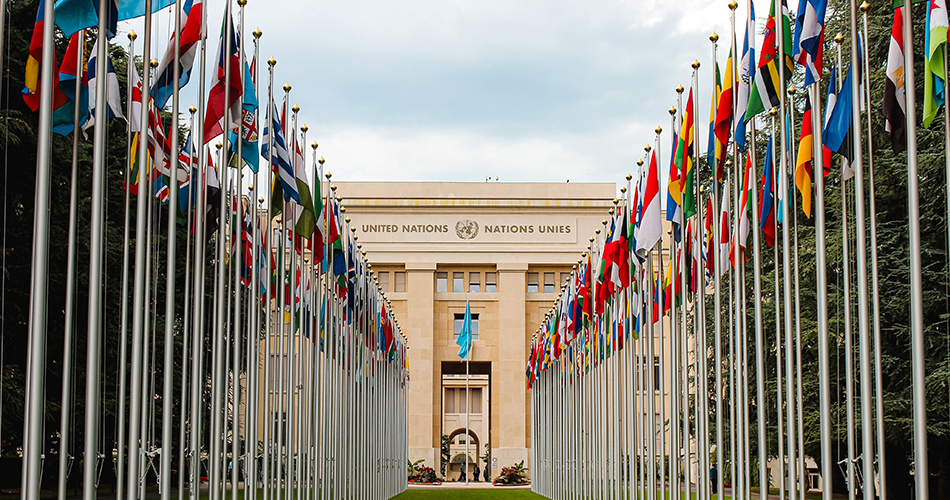
Article(s)
120 UN Member States Support the Moratorium at Committee Vote
By Louis Linel, on 18 November 2020
On 17 November, the Third Committee of the United Nations General Assembly has adopted a draft resolution calling upon UN Member States to observe a moratorium on executions.
2020
Congo
Democratic Republic of the Congo
Djibouti
Eswatini
Guinea
Lebanon
Mexico
Moratorium
Nauru
Philippines
Republic of Korea
Sierra Leone
Switzerland
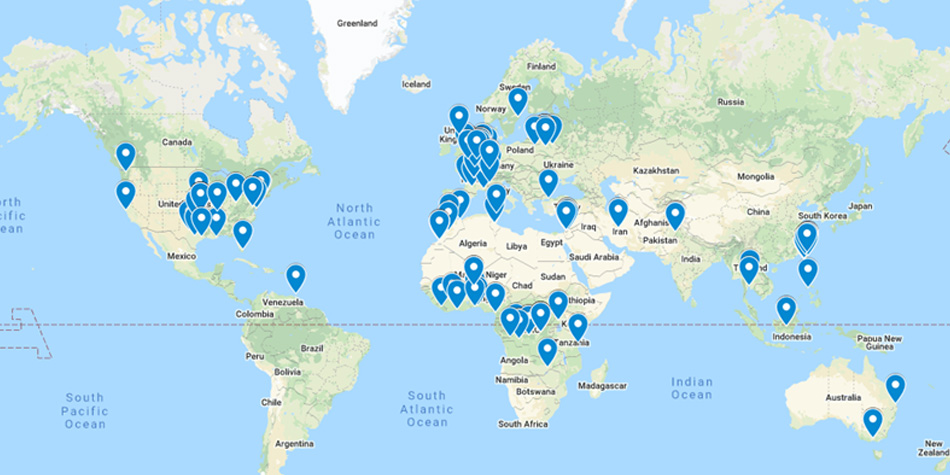
Article(s)
Take Action for World Day 2023!
By World coalition against the death penalty, on 20 September 2023
Take action now! The 21st World Day Against the Death Penalty is an excellent opportunity to publicly oppose the use of this inhumane punishment and to support those who are fighting for its abolition all over the world.
2023
Cruel, Inhuman and Degrading Treatment and Punishment

Article(s)
China: Judicial guidelines to curtail activism for Taiwan a further blow for human rights protections
By Amnesty International, Anti-Death Penalty Asia Network, Capital Punishment Justice Project, the Rights Practice and the World Coalition Against the Death Penalty, on 1 August 2024
Taken from the declaration posted on Amnesty International’s web page found here. “Amnesty International and four other organizations are alarmed by the recent publication by the Chinese authorities of new judicial guidelines providing directives to prosecute and harshly punish, including by the death penalty, those advocating and acting for Taiwan’s independence. The guidance effectively encourages […]
2024
China
Article(s)
Teaching abolition in Taiwan
on 9 December 2009
Tsou Tzung Han is a Taiwanese teacher who actively took part in educational activities organised around World Day Against the Death Penalty. He writes about his experience with his students.
2009
Public Opinion
Taiwan
Taiwan
Article(s)
Second Optional Protocol: An irreversible mechanism for abolishing the death penalty” – Denys Robiliard
on 7 September 2020
Denys Robiliard, a lawyer and former president of Amnesty International’s French section, details why the Second Optional protocol to the UN’s ICCPR is an crucial instrument to push the abolition of the death penalty worldwide.
2020
Afghanistan
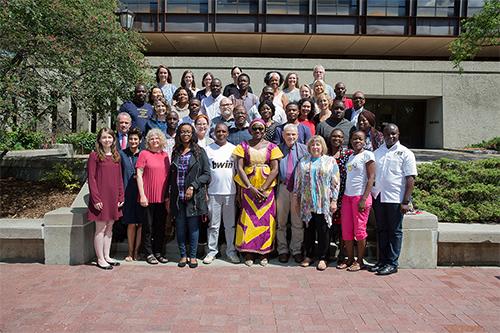
Article(s)
Makwanyane Institute Is Launched at Cornell Law School
By Sherrie Negrea, Cornell Law School, on 17 July 2017
Fifteen capital defense lawyers from eight African countries arrived at Cornell Law School on June 12 to begin eight days of training on how best to represent death penalty clients in the first session of the Makwanyane Institute.
2017
Legal Representation
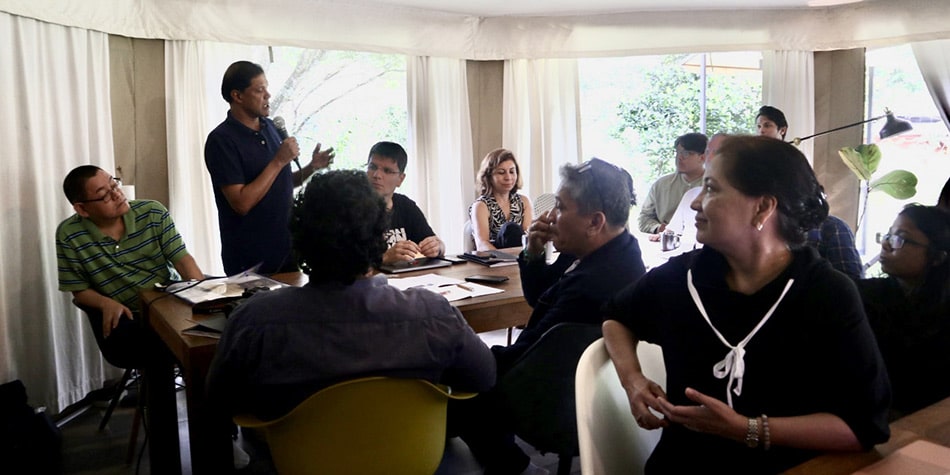
Article(s)
Debunking narratives for a return of the death penalty
By Venus Aves, on 13 November 2023
Time and time again, abolitionists have been making the case against the death penalty, highlighting how inhumane, inefficient and unfair it is.
2023
Drug Offenses
Maldives
Philippines
Public Opinion
Sri Lanka
Trend Towards Abolition
Turkey

Article(s)
Death penalty: Global abolition closer than ever as record number of countries vote to end executions
By Amnesty International, on 17 December 2018
A record number of States – 121 out of 193 member states – voted in favour of a moratorium on the death penalty at the United Nations General Assembly on December the 17th. A world without the death penalty may become a reality according to Chiara Sangiorgio, Amnesty International’s Death Penalty Expert.
2018
Moratorium
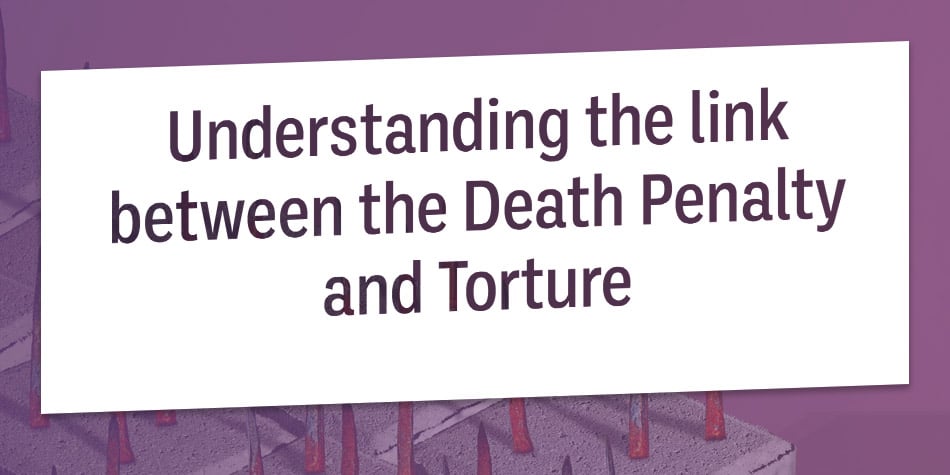
Article(s)
International Day in Support of Victims of Torture: Understanding the link between the Death Penalty and Torture
By Wendy Adouki, on 26 June 2023
Today, 26th June 2023, the world is commemorating the International Day in Support of Victims of Torture (International Day). Started in 1987, this International Day began when the United Nations Convention Against Torture and Other Cruel, Inhuman or Degrading Treatment or Punishment (UN Convention Against Torture) came into force; a crucial legal text to combat […]
2023
Cruel, Inhuman and Degrading Treatment and Punishment
Death Row Conditions
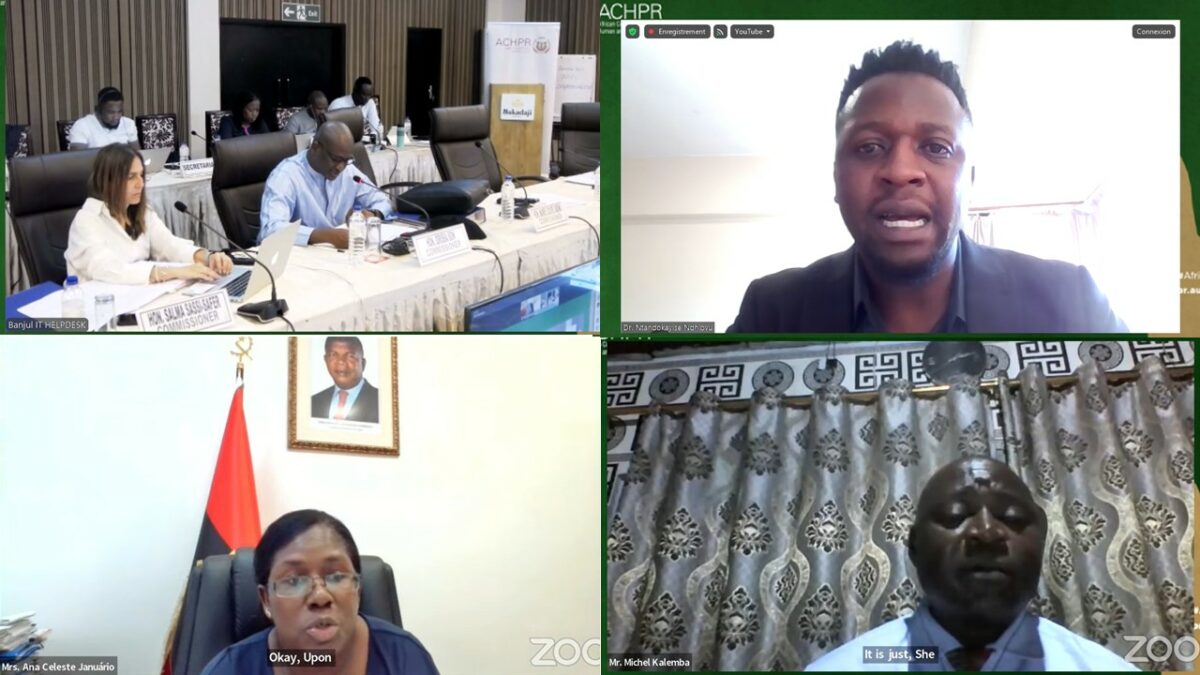
Article(s)
Key Outcomes from the 79th Ordinary Session of the African Commission on Human and Peoples’ Rights
By Isabella Ataides, on 26 September 2024
From 14 May to 3 June 2024, the African Commission on Human and Peoples’ Rights (ACHPR) held its 79th Ordinary Session in a hybrid format. Members of the Commission and staff of its Secretariat physically attended the Session in Banjul, Gambia; all other participants attended the Session online via Zoom.
2024
Trend Towards Abolition

Article(s)
TAIWAN: CONSTITUTIONAL COURT TO HEAR CHALLENGE TO DEATH PENALTY LAW
By World coalition against the death penalty, Amnesty International, on 23 April 2024
On 23 April 2024 the Constitutional Court of Taiwan will hear a challenge on the constitutionality of the death penalty in the country. Amnesty International Taiwan and the World Coalition Against the Death Penalty are among several non-governmental organizations intervening in the case, in support of the full abolition of the death penalty.
2024
Taiwan
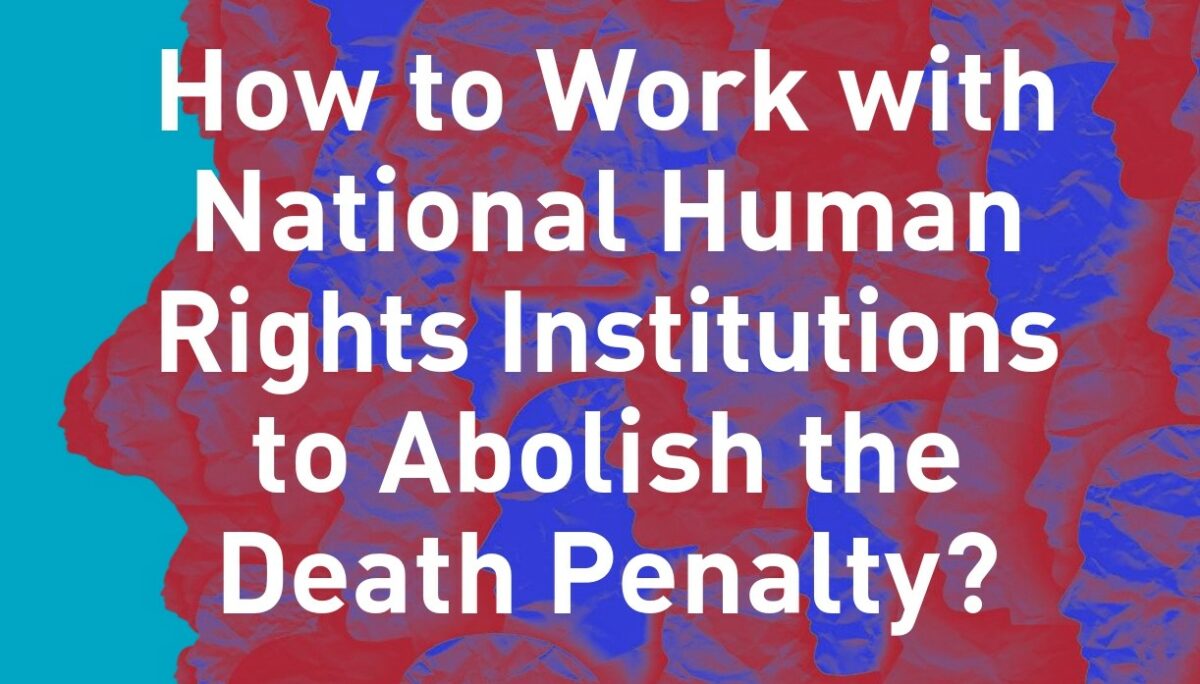
Article(s)
Publication of a New Guide on Working with National Human Rights Institutions to Abolish the Death Penalty
By Bronwyn Dudley, World Coalition Against the Death Penalty, on 17 November 2022
The World Coalition Against the Death Penalty has published a new how-to guide, in collaboration with Mr. Isidore Clément Capo-Chichi, President of the Beninese Commission on Human Rights. It is aimed for civil society organizations and illustrates how to collaborate with National Human Rights Institutions (NHRIs) to achieve the abolition of the death penalty. In […]
2022
Trend Towards Abolition

Article(s)
Abolition of the death penalty at the 50th session of the UN Human Rights Council
By Anissa Aguedal, on 19 August 2022
The United Nations Human Rights Council met for its 50th Regular Session from June 13 to July 8, 2022. If you missed it, here is what happened regarding the abolition of the death penalty!
2022
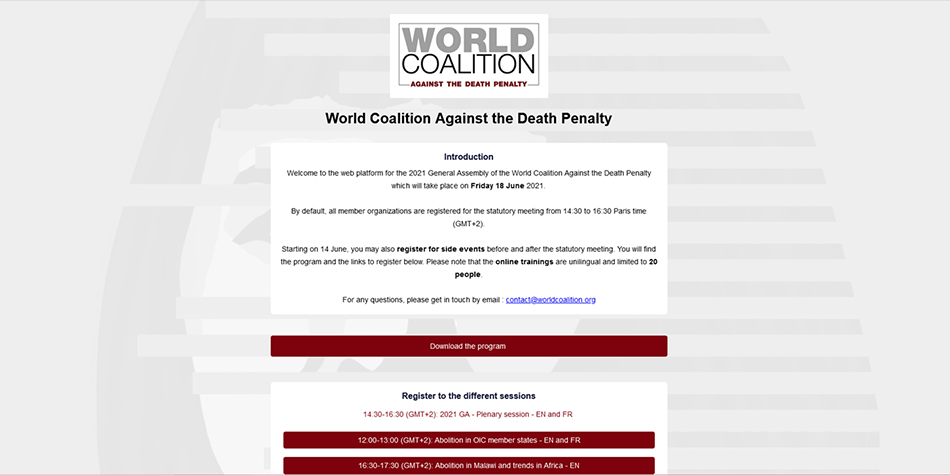
Article(s)
Program of the 18 June 2021 General Assembly
By World Coalition Against the Death Penalty, on 15 June 2021
If you are a member organization, join the fantastic program we will have on Friday 18 June!
2021
Juveniles
Women
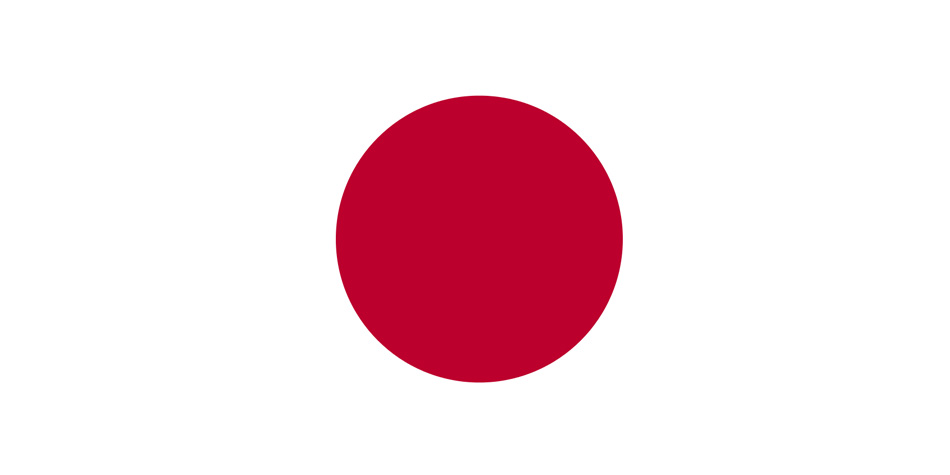
Article(s)
Protest Against Executions Ordered by Minister of Justice Yoshihisa Furukawa
By Center for Prisoner Rights and Japan Innocence and Death Penalty Information Center, on 23 December 2021
On 21 December 2021, Japan’s new governement executed three men after two years with no execution during which Japan hosted the Olympics and the United Nations Congress on Criminal Justice.
2021
Japan
Legal Representation
Moratorium
Document(s)
Compendium of case law of the European Court of Human Rights on the death penalty and extrajudicial execution
By Jeremy McBride, Council of Europe, on 24 April 2022
2022
International law - Regional body
Legal Representation
More details See the document
The compendium’s aim is to assist national judges, prosecutors and lawyers from the 46 member states of the Council of Europe to deal with extradition or deportation cases when there is a risk of the death penalty being imposed in third countries or of extrajudicial execution. It also aims at enabling legal professionals from countries where the death penalty still exists to develop arguments based upon the reasoning of the case law of the European Court of Human Rights. It contains relevant extracts from the Court’s case law, structured in a user-friendly way.
- Document type International law - Regional body
- Themes list Legal Representation

Article(s)
Reorienting Drug Policy in Indonesia towards the Achievement of the Sustainable Development Goals
By LHB Masyarakat, Swiss Federal Department of Foreign Affairs, on 6 August 2020
Indonesian not-for-profit organization LBH Masyarakat, Reprieve, and the Swiss Federal Department of Foreign Affairs recently published a report that reframes the drug problem and corresponding policy action in light of the country’s commitment to the achievement of the Sustainable Development Goals (SDGs). The report argues that the drug policies currently in place in Indonesia must be re-evaluated in such a way that tackles poverty and inequality and prioritizes support for those who are “left behind”, and put an end to its current punitive strategies.
2020
Drug Offenses
Indonesia
Document(s)
Abolition of the Death Penalty in the Eastern Caribbean and Barbados
on 15 December 2020
2020
Lobbying
Barbados
Trend Towards Abolition
More details Download [ pdf - 2611 Ko ]
Greater Caribbean for Life has launched its educational toolkit to assist activists and organisations as they work toward abolishing the death penalty in the Greater Caribbean. The production of this toolkit forms part of GCL’s activities under its EU partnered project to educate on death penalty abolition in the Eastern Caribbean and Barbados.
The launch of the toolkit is timely as a few of these target countries recently voted against adopting the UN Moratorium on the use of the death penalty and countries that had previously chosen to abstain have now firmly voted against the resolution.
GCL members condemn the rise of violent crime in our region and express solidarity and compassion with the victims of crime, however, we reject the notion that capital punishment will act as a deterrent or foster respect for life in our communities.
It is our hope that this toolkit will assist in promoting respect for the right to life for all human beings in the Caribbean region.
- Document type Lobbying
- Countries list Barbados
- Themes list Trend Towards Abolition
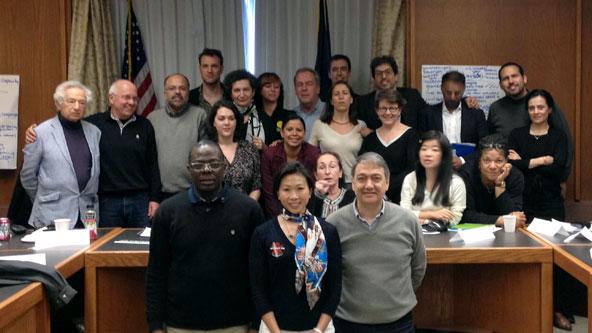
Article(s)
New Hampshire one vote short of abolition
By Emile Carreau, on 25 April 2014
A bill to repeal the death penalty in the US state of New Hampshire was blocked in the Senate on 22 April with votes for and against the bill deadlocked at 12-12. Despite the disappointment, Renny Cushing, Executive Director of World Coalition member organisation Murder Victims’ Families for Human Rights, sees some positives.
2014
United States

Member(s)
Coalition of Somali Human Rights Defenders CSHRD
on 24 July 2024
The Coalition of Somali Human Rights Defenders (CSHRD) is an organization dedicated to promoting and protecting human rights in Somalia. CSHRD was established in 2014. CSHRD runs holistic and comprehensive torture victims rehabilitation centre in Somalia. CSHRD work is guided by the Universal Declaration of Human Rights UDHR and the SDGs of 1, 5, 10, […]
2024
Somalia
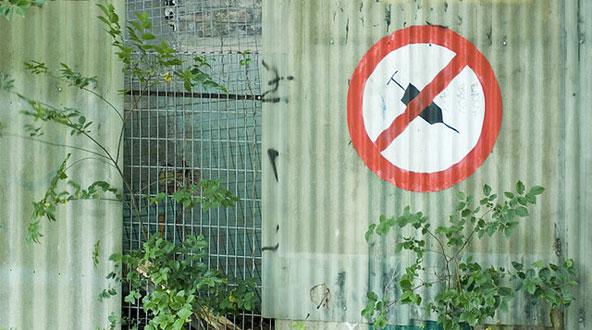
Article(s)
The shared responsibility of capital punishment
on 27 September 2011
Everyone agrees that the highest international standards should apply in the fight against drug. But what about the standards used in punishing traffickers- and the inappropriate use of the death penalty against such criminals?
2011
Australia
Bhutan
Colombia
Drug Offenses
Indonesia
Italy
Mozambique
Nepal
Niue
Pakistan
Philippines
South Africa
State of Palestine
Sweden
Taiwan
Terrorism
Thailand
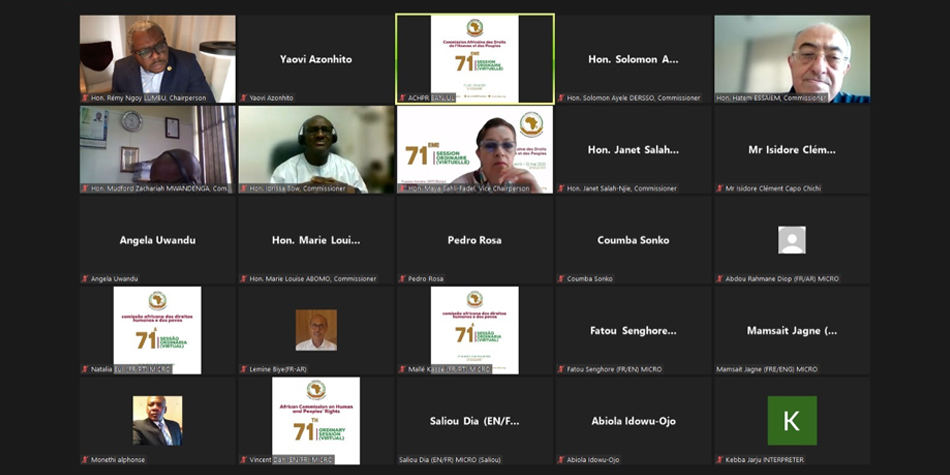
Article(s)
71st Ordinary session of the African Commission: focus on torture and the death penalty
By Sarah Saint-Sorny, on 9 June 2022
The African Commission on Human Rights and People (ACHPR) once again met on Zoom for its 71st Ordinary session from April 21st to May 13th, 2022. The honorable Rémy Ngoy Lumbu, President of the Commission, has expressed his hopes for the next session to take place in person in Banjul this autumn.
2022
Central African Republic
Congo
Democratic Republic of the Congo
Kenya
Malawi
Mauritania
Niger
Nigeria
Sierra Leone
Tunisia
Zambia

Article(s)
Glossary of the Second Optional Protocol
By Pierre Désert, on 25 June 2008
From “Acceptance” to “Treaty”, discover the vocabulary of international law and get a clearer picture of the Second Optional Protocol.
2008
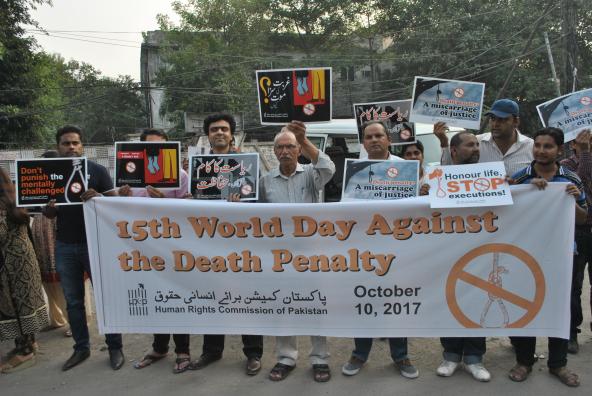
Article(s)
Abolitionists fight against the abusive use of the death penalty
By Thalia Gerzso, on 28 November 2017
In October 2017, Pakistan has agreed to initiate efforts to narrow down the scope of the death penalty. This first step is the result of a strong mobilization from Pakistani and international organizations, in particular during World Day.
2017
Pakistan
Public Opinion
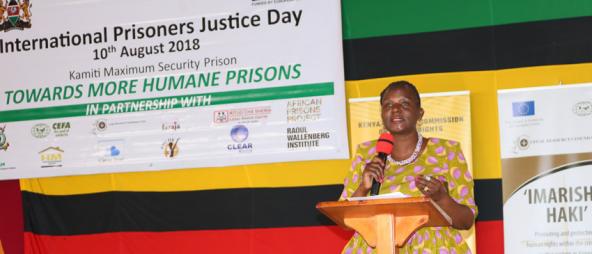
Article(s)
Kenya’s new taskforce to review death penalty laws
By Nicolas Chua, on 11 September 2018
In December 2017, two Kenyan men challenged the legality of capital punishment at the Supreme Court, which resulted in Chief Justice Marage declaring the « mandatory nature of the death sentence » unconstitutional. Following this groundbreaking statement, the Taskforce on the Review of the Mandatory Nature of the Death Penalty was appointed on March 15 2018.
2018
Kenya

Article(s)
« A new Gambia » welcomes the 61st session of the ACHPR
By FIACAT and World Coalition against the Death Penalty, on 21 November 2017
From November 1st to November 15, 2017, the 61st session of the African Commission on Human and Peoples’ Rights, as well as the NGO Forum, took place in Banjul, Gambia. During the opening session, the President of The Gambia, Adama Barrow, confirmed the “New Gambia’s commitment” to human rights.
2017
Gambia
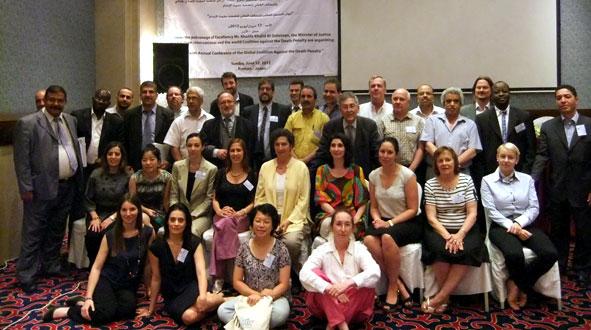
Article(s)
10 years, 132 members, 45 countries
By Florence Bellivier, on 30 June 2012
Penal Reform International welcomed the World Coalition Against the Death Penalty to celebrate its tenth anniversary in Jordan with support from Justice Minister Khalifa Al Sulaiman.
2012
Drug Offenses
Iran (Islamic Republic of)
Iraq
Jordan
Moratorium
Singapore
Taiwan
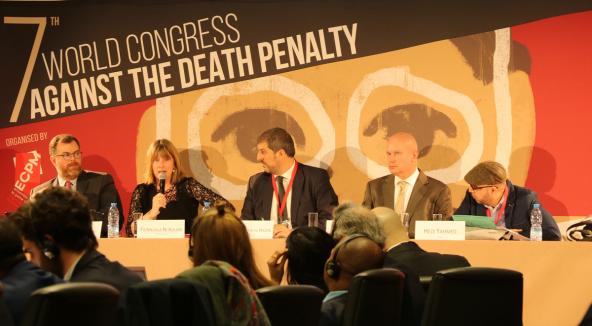
Article(s)
7th World Congress – 28th february
By World coaltion against death penalty, on 28 February 2019
The programme of the 7th World Congress continued today with more than fifteen events held at the Egmont Palace. Plenary meetings, round tables, workshops, screenings and signings… This is a non-exhaustive summary of this new day.
2019
Public Opinion
Member(s)
European Association for Human Rights
on 30 April 2020
The European Association for Human Rights mainly promotes the welfare of prisoners. Its work is especially focused on taking care for death row prisoners and their children, and abolishing the death penalty. Many people on death row are dismissed in their search for help and support from the established human rights organizations. There is a […]
2020
France

Article(s)
Responsible Business Initiative on the Death Penalty
By Louis Linel, on 19 July 2019
On the occasion of the meeting of its Steering Committee on Friday 28 June and Saturday 29 June 2019, the World Coalition Against the Death Penalty has invited the director of Responsible Business Initiative Against the Death Penalty, Ms. Celia Ouellette, to present the involvement of companies against the capital punishment alongside with traditional activists.
2019
Document(s)
Detailed factsheet – World Day 2024 & 2025
By World coalition against the death penalty, on 11 July 2024
2024
Campaigning
World Coalition
frMore details Download [ pdf - 485 Ko ]
- Document type Campaigning / World Coalition
- Available languages Fiche d'information détaillée - journée mondiale 2024 & 2025
Document(s)
Mobilization Kit 2006
By World Coalition against the death penalty , on 10 October 2006
2006
Campaigning
Trend Towards Abolition
frMore details Download [ pdf - 114 Ko ]
The World Coalition was created in Rome on 13 May
2002, following the commitment undertaken by the
organizations who signed the Final Declaration of
the First World Congress against the death penalty
in June 2001 in Strasbourg. It comprises 52 non-
governmental organizations, as well as bar asso-
ciations, trade unions and local communities.
The Coalition aims to reinforce the international
movement to abolish the death penalty, to reduce
the scope of capital punishment and put an end
to executions wherever they take place. To this
end, the Coalition facilitates the creation and devel-
opment of national and regional coalitions against
the death penalty. The Coalition also spearheads
lobbying efforts directed towards states and inter-
national institutions.
- Document type Campaigning
- Themes list Trend Towards Abolition
- Available languages Kit de mobilisation 2006
Document(s)
Death Penalty in India: Annual Statistics Report 2023
By Project 39A, on 15 February 2024
2024
NGO report
India
More details See the document
Published in 2023.
This is the eighth edition of the Death Penalty in India: Annual Statistics Report. This annual publication presents changes in the death row population as well as political and legal developments in the administration of the death penalty in India each year. The statistics are compiled through a combination of data mining of court websites, media monitoring and Right to Information applications.
- Document type NGO report
- Countries list India
Document(s)
Intiatives World Day 2005
By World coalition against the death penalty , on 10 October 2005
2005
Campaigning
Trend Towards Abolition
frMore details See the document
Intiatives World Day 2005
- Document type Campaigning
- Themes list Trend Towards Abolition
- Available languages Initiatives journée mondiale 2005
Document(s)
Somebody’s Child: Amid the Lingering Trauma of Trump’s Executions, a New Project Brings Families to Federal Death Row
By The Intercept, on 15 February 2024
2024
Article
United States
More details See the document
Published on February 11, 2024.
In 2002, Ra’id was arrested alongside several other suspects following a botched bank robbery that left two people dead and another paralyzed. His co-defendants pointed to him as the mastermind, which Ra’id adamantly denied. “I did not take part in that atrocity,” he told the court following his trial. “I did not shoot and kill anyone.”
Newson attended his father’s sentencing hearing, along with his mother, Jeannie Gipson-Newson. A death sentence would be “devastating to my child,” she remembered testifying. But it felt futile. The jurors seemed to have made up their minds. In 2004, Ra’id was sentenced to die.
- Document type Article
- Countries list United States
Document(s)
Life After Sentence of Death: What Becomes of Individuals Under Sentence of Death After Capital Punishment Legislation is Repealed or Invalidated
By James R. Acker, Brian W. Stull, on 25 July 2021
2021
Academic report
United States
More details See the document
More than 2500 individuals are now under sentence of death in the United States. At the same time, multiple indicators—public opinion polls, legislative repeal and judicial invalidation of deathpenalty laws, the reduction in new death sentences, and infrequency of executions—suggest that support for capital punishment has significantly eroded. As jurisdictions abandon or consider eliminating the death-penalty, the fate of prisoners on death row—whether their death sentences, valid when imposed, should be carried out or whether these individuals should instead be spared execution—looms as contentious political and legal issues, fraught with complex philosophical, penological, and constitutional questions. This article presents a detailed account of what has happened historically to persons awaiting execution, principally within the United States but also internationally, at the time capital-punishment legislation is repealed or invalidated (either completely, or with respect to a narrow category of crimes or persons). Our analysis has uncovered no instances of executions being carried out under those circumstances. This finding has important policy implications and is directly relevant to the Supreme Court’s Eighth Amendment jurisprudence, which relies on execution practices as one measure to help inform the Court about whether the death penalty is a cruel and unusual punishment.
- Document type Academic report
- Countries list United States
Document(s)
2021 World Day Report
on 10 June 2022
2022
World Coalition
Women
frMore details Download [ pdf - 4154 Ko ]
On 10 October 2021, the World Coalition and abolitionists around the world celebrated the 19th World Day Against the Death Penalty (‘World Day’). Every year on World Day, the World Coalition highlights one problematic aspect of the Death Penalty. In 2021, the World Day explored the theme “Women sentenced to death, an invisible reality” to raise awareness on how the treatment of gender and gender-based inequalities create particularly precarious conditions for women sentenced to capital punishment. This report presents the activities organised for the 19th World Day and the media coverage it received.
- Document type World Coalition
- Themes list Women
- Available languages Rapport journée mondiale 2021
Document(s)
INSECURITY REVEALED: Voices Against the Death Penalty
By World Coalition Against the Death Penalty, on 6 August 2024
2024
Campaigning
World Coalition
frMore details Download [ pdf - 1313 Ko ]
- Document type Campaigning / World Coalition
- Available languages L'INSÉCURITÉ RÉVÉLÉE : Voix contre la peine de mort
Document(s)
Malawi – Committee on the Elimination of Discrimination Against Women – Death Penalty – January 2022
on 31 January 2022
2022
NGO report
World Coalition
Malawi
Women
More details Download [ pdf - 311 Ko ]
Detention conditions for women in Malawi are crowded, and women in prisons are not given adequate food and nutrition. Specifically, many prisons only serve people with one meal a day, often consisting of a maize meal (nsima) and peas or beans. Overcrowded conditions are a particular concern during the COVID-19 pandemic, when risk of transmission of the disease is high. Prison conditions in Malawi amount to inhuman and degrading treatment.
Women in death penalty proceedings in Malawi lack access to qualified legal representation. Defense advocates in Malawi who are assigned to capital cases often lack relevant experience. In at least one case, a lawyer failed to raise the complete defense of self-defense in representing a woman who killed her husband as a result of a long history of domestic abuse. Had the defense been raised, it is possible that the woman would not have been sentenced to death. Moreover, women from poor and marginalized communities are disproportionately affected by the death penalty because when they are accused of crimes, they are often unable to understand the charges against them because they are illiterate and cannot read the complaint against them. They are also unable to retain private counsel.
Women who face extensive gender-based violence are disproportionately affected by the death penalty in Malawi, including those who seek to protect themselves against their abusers. Long histories of gender-based violence can result in complex trauma and can exacerbate psycho-social or intellectual disabilities, yet sentencing courts fail to take these nefarious effects into account as factors in mitigation of a death sentence.
- Document type NGO report / World Coalition
- Countries list Malawi
- Themes list Women

